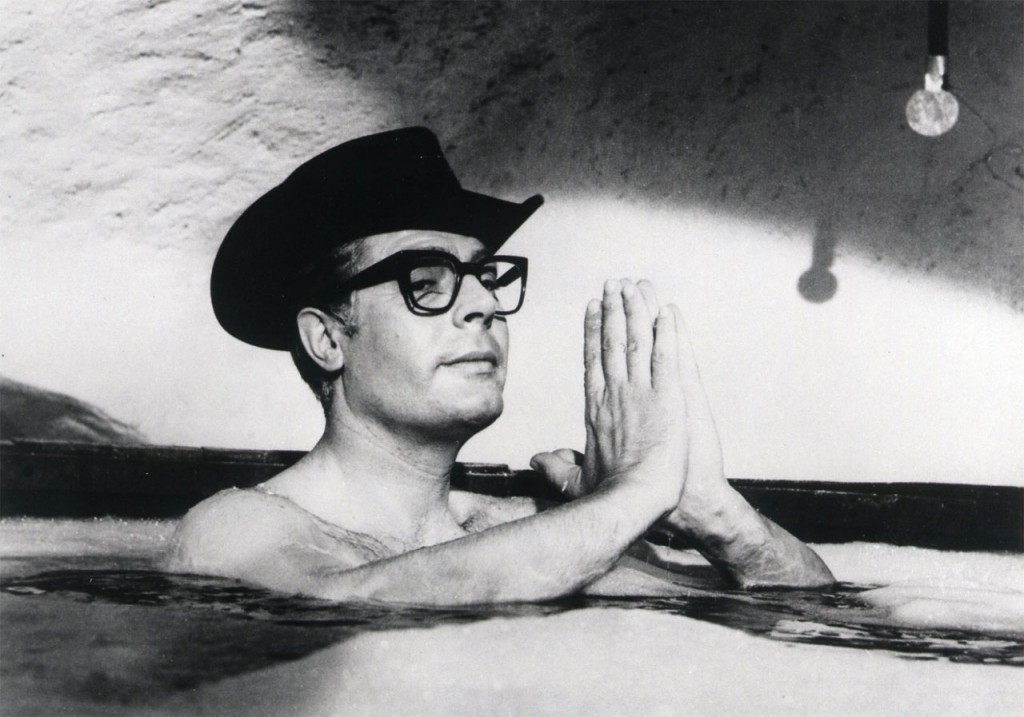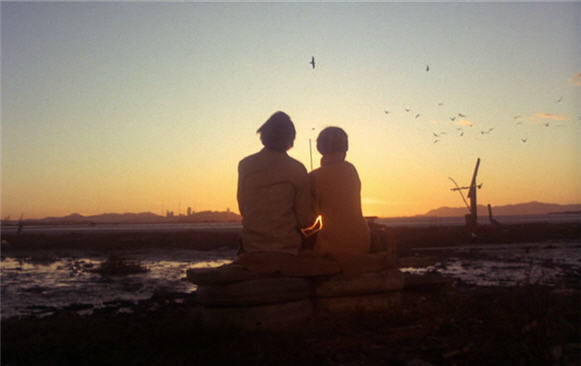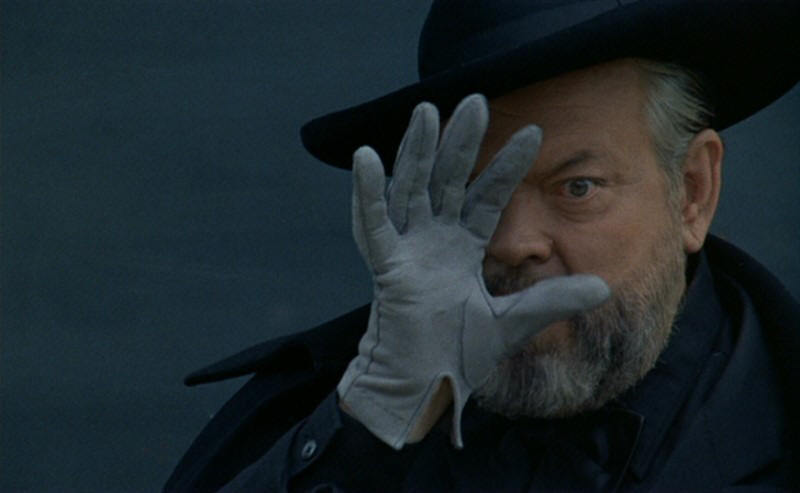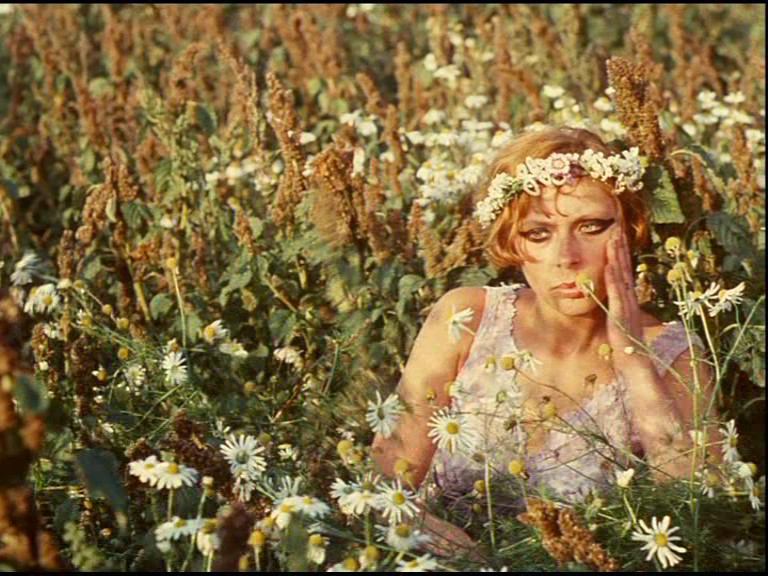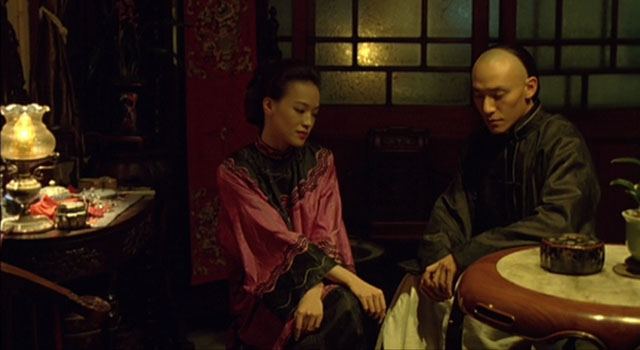Let’s finish the film report before posting another couple of interesting ones.
8 1/2
Seeing this film in Criterion Blu-ray is something quite like The Leopard,this format really gave a new life to one of the most beautifully shot black&white films ever.As I proceeded an hour into the film,I suddenly realized this is the sister film of the master’s another masterpiece La Dolce Vita.Based on the experience of watching that film and the first viewing of this film, I came to the conclusion that both films share the same subject: The beautiful confusion of a man’s love,only this film is more liberate and operatic in form.Fellini shifted the POV from the female angle of La Strada and Nights of Cabiria to a more subjective,self-conscious male angle,the leading character of both films,played by the fantastic Marcello Mastroianni,have problems with the women around them.More like the boy in this film,these two men couldn’t figure out the difference between desire and love,which reflects Fellini’s pessimistic view on men’s ability to love,and I think he thought the Italian catholic background had huge influence on repressing male desire towards women and prevented them being fully “evolved” after their adulthood.
Harold and Maude
This best seller during the B&N discount promotion really lived up to its reputation as one of the most beloved cult classics ever made.One can easily found strength for life from this powerful film,or,should we say,from the rebelling character Maude,and her love with the big boy Harold.This unconventional tale of love and death are highlighted with some hilarious suicidal attempts(especially the harakiri one) and wonderful Cat Stevens songs,the tone of the whole film is pitch perfect and never over sentimental.
F for Fake & Certified Copy
Magnificent Criterion double feature of the subject of the originality and fakery. Orson Welles really made a breakthrough in his filmmaking through the free-form documentary,the narrative and editing is something I’ve never seen before.Abbas went a step further in the subject,from the authenticity and forgery of art to the authenticity and forger of real life,the relationship between the man and woman transforms in an invisible fashion as the journey goes on,one can hardly tell if they are a real couple or not.Both magicians of cinema turned film into something truly unique and remarkable.
Daisies & Capricious Summer
Thanks to the great DVD company Second Run,whose production line is mainly dedicated to Eastern European films,I got the chance to see more films produced in this magical and radical area and love them.However,my first two entries to the Criterion Czech New Wave Eclipse set is quite disappointing,I have to say.I understand the status of Daisies in the feminist cinema history but it’s really a torturous experience for me,it’s too form-over-substance and playful to me,maybe the experimental cinema is not my dish,but I’m really sick of this kind of cinema.Capricious Summer tells an interesting story but I found the plot too loose and couldn’t quite focus.What’s the matter of all these? Is it my taste changes or the selections suck?
Three Times & Coffee Times & Millennium Mamboo
I’m glad I watched these three films in the order like this,otherwise I would give up in the first attempt.Three Times is a absolute beauty,the two song choices “Smoke in your eyes”and “Rain and tears” are brilliant,they added a different flavor to Hou’s nostalgia first story in the film.The second part is sensational in terms of its silence film form and performance,so Chinese and so visually striking.The third part is a weaker one,I don’t think Hou is good at this kind of modern love stories.Nevertheless,if one really knows the history and can understand all three love stories are metaphors of the relationship between Taiwan and Mainland,this film should be great.
Coffer Times is Hou’s dedication to the 100 years of the birth anniversary of the great Japanese director Yasujiro Ozu.How natural one director who loves shooting railways salutes to another director who is also famous for doing the same thing.Many finds this film boring but I enjoyed it a lot,Hou did not salute the master in the way of how he shoots scenes but in the way of how he presents the emotions of his characters. The plot is hard to catch if you do not watch it carefully enough because there are many subtexts,but if you understand the story fully,it can be a success imitation of Ozu’s work.
Millennium Mamboo is not so good as the last two,Hou is not Edward Yang or Wong Karwai,he does not know how to shoot love stories between lover in modern city.His understanding of it is not accurate as Yang and his form is far behind WKW.
The report ends here and I will post another two next week before I leave for Hong Kong,I won’t came back until the middle of August and hope I can bring back a photo of Hong Kong films.
